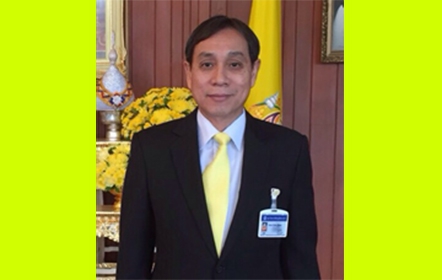GEN Aksara insists peace talk with the separatists is making progress
In light of a barrage of criticisms against the peace talk process with the southern separatist groups for the perceived lack of progress of the process and the continuing violence in the restive Deep South,

General Aksara Kerdphol, chief of the government’s peace talk team, recently sat down with a selected group of journalists and observers from Isra news centre, Thai PBS and Deep South Watch Centre for a candid talk about the process and the situation in the region.
General Aksara, also the army’s advisory chief, claimed that the peace talk between the government and the separatist groups under the umbrella organization called Mara Patani had made substantial progress but he could not talk about it in public as any disclosure of the talk could endanger the lives of people in the region and also their properties.
He said that there were some elements lurking on the sideline who would seize the opportunity to stir up troubles. He admitted he didn’t know who they were but they definitely were against reconciliation.
The general insisted he was not the only person involved in the peace talk. All security agencies have been represented, he said.
The southern unrest problem is complicated and involves several aspects including ideology, local politics, conflict of interests, narcotics, influential people, ordinary crimes and outlawed movements.
General Aksara disclosed that his focus was on the ideological aspect. He said that there were people who reckoned that the peace talk would be a failure because the troublemakers were not involved. But when he was not involved, the same critics said that the troublemakers were inside, he added.
The general said he met with the other side before the fasting month of the Ramadan and asked them to stop all violence during the Ramadan but they pointed back at his side for starting the violence. He said he looked at his teammates and realized there were hawks and doves among them.
However, he insisted there were less violent incidents for most of the month of Ramadan compared to last year with the exception of the last ten days when violent incidents suddenly broke out.
He said the authorities concerned had to find out who were actually behind the violence as the Mara Patani had denied any responsibility.
The general insisted that the peace talk process had the greenlight from the government and the peace talk team was official.
The peace talk process has made, at least, two achievements so far. General Aksara said that all the separatist groups were represented in the talk, including the armed groups who, however, participated in the capacity as the observers.
The other achievement is an agreement of both sides to reduce violence during the Ramadan although no formal ceasefire was inked. And violent incidents have actually declined during the Ramadan.
"This is a matter that we didn’t want to take about it during the Ramadan because we didn’t want some opposing elements to undermine the peace," said the general.
He outlined three areas which are to be undertaken in the next step of the peace process. These include development of the region in a way which meets the wishes and aspirations of the local people; creation of safety zones and the justice issue.
General Aksara said the three above-mentioned areas were just his idea and he had to wait for inputs from the separatist groups and more would have to participate in the next step of the process.
The general’s working strategy is that the people must be on his side and support the peace process which, he believes, will be successful in the end.
At the start of the new round of peace talk, General Aksara disclosed that he told his opposite peace talk team that he represents the people and that the government sincerely wants peace to be restored in the region and if they do not want peace, then the situation will remain as it has been.
He also dismissed the suspicion held by some sectors of the Thai society that Malaysia is insincere and wants to keep the Deep South as a buffer zone. "That is an obsolete belief," he said, adding that there are greater threats today for Malaysia such as the ISIS and the Islamists – threats that all countries in the region must cooperate to deal with.
